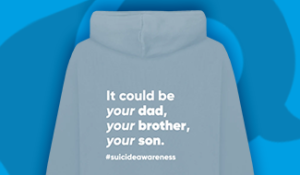A frequent cause of frustration within family proceedings is that many disputes take place in private, within the confines of the family home, so there is rarely an independent third party present to corroborate your version of events. As a result, it is often your word against your former partner’s and it is left to who the Judge or the Magistrates believe. This can be very unsettling. Without independent witnesses, how does a parent prove that the other is being abusive during handovers, or is inappropriately influencing the children behind closed doors? Often the children themselves are unable to recognise that any manipulation is occurring and even if they do, they may be too young for their account to be given proper consideration by the Court.
Whilst the desire to collect evidence is understandable, parents should exercise caution when making secret recordings which they later attempt to rely upon within Children proceedings.
The temptation can therefore arise for parents to make records, including covert recordings, to gather evidence in support of their concerns. This temptation is heightened by the ever-increasing sophistication of modern recording equipment and the ease at which this equipment is accessible to the public. Almost every parent now owns a smart phone which can easily be used to video incidents. Whilst the desire to collect evidence is understandable, parents should exercise caution when making secret recordings which they later attempt to rely upon within Children proceedings.
Contrary to popular belief, taking secret recordings for personal or family use is not illegal, but any person who seeks to rely upon such recordings in Court must first obtain the Court’s permission to do so, and this is not necessarily an easy task.
Secret recording of children:
In the recent case of M v F (Covert Recording of Children) [2016], the Father and his current partner had placed recording devices on the child without her knowledge, for the purposes of gathering evidence. The Father had sewn “bugs” into the child’s clothing, which enabled secrets recordings to be made over a number of years.
The Judge stated that it is “almost always wrong” for a recording device to be placed on a child for the purposes of gathering evidence within family proceedings, whether the child knows of its presence or not. In this case, the Judge made a final Order for the child to live with the Mother, stating that the Father’s actions in making the covert recordings demonstrated a lack of understanding by him as to the child’s best interests and created a secret which was likely to cause the child emotional harm and adversely affect her relationship with adults in general when she came to learn of it.
This is clearly an extreme example; in other cases, the Court has allowed covert recordings into the proceedings as evidence and has relied upon them as a useful corroboration of one party’s version of events, but the position remains very case-specific.
Secret recordings of handovers:
Caution should also be exercised when making secret recordings of the other parent during handovers. In a recent case, the Court of Appeal concluded that video-recording handovers amounted to intimidation and could be used in support of an application for a non-molestation injunction.
Secret recording of professionals:
The issues faced may be with professionals involved in the case, such as the CAFCASS officer or social worker, who you believe is inaccurately reporting matters to the Court. Whilst CAFCASS have stated that they have should have nothing to fear in being covertly recorded and therefore should not object, it is best practice to inform the professional before any recordings are made. Secretly recording anyone is rarely likely to be considered appropriate.
As can be seen above, whilst it is lawful to make covert records for personal and private use, there are risks involved in taking secret recordings and even if they are allowed into the court proceedings to be used as evidence, the Court may consider that the recordings are harmful to your case. The Court may conclude that secret recordings, especially of a child, have lead to inappropriate questioning for the purpose of gathering evidence, which can amount to emotional abuse. Secret recording is often regarded as a breach of privacy, regardless of legal principles.
What records can and should be kept?
It is advisable to keep a diary and a handover log, where you contemporaneously note down any issues with handovers, or any other problems, as and when they occur. An up to date diary is typically considered to be good evidence, as the entries are made at the time of the incident or shortly thereafter, so the recollection of events is likely to be accurate and detailed, and therefore reliable.
If contact is taking place in a contact centre, you may be able to obtain notes from the contact centre staff, confirming what happened during the contact sessions and if there were any issues or concerns.
Posted on July 16, 2018














